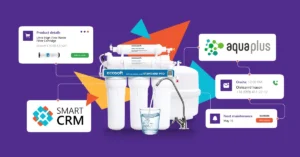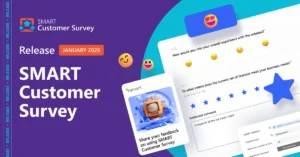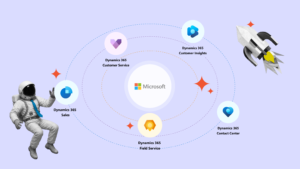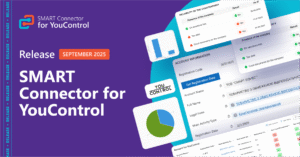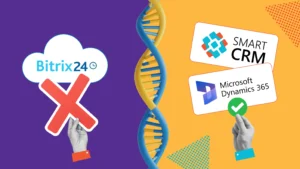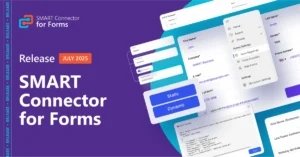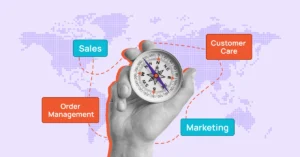Why Businesses Need CRM: Key Reasons to Invest in Customer Management

The success of almost any business can be measured by one key factor – relevance. As long as there is demand for a product or service, there is revenue and growth. However, many companies are now facing the question: “How can we stay relevant amidst constantly changing trends and the rapid evolution of the market?”. This is indeed a critical issue, as keeping up with global changes is nearly impossible without processes automation and artificial intelligence. This is supported by data from theWorks: in 2024, 94% of companies in the tech sector and 71% of small businesses began using CRM systems. This trend is expected to continue growing, as CRM (Client Relationship Management) has long since evolved beyond being just a tool for managing clients. Today, it’s a flexible, multifunctional solution that helps modernize a range of related processes, including:
- Hyper-personalized communication with customers
- Structuring and segmenting database information
- Nurturing and retaining leads
- Managing sales funnels
- Automating routine tasks
- Building strategies through automated reporting
- Coordinating actions across different teams
- Protecting data with up-to-date protocols
One of the key functions of a CRM system is the visualization of processes. This transparency across all decisions and strategies allows companies to build a more efficient production and sales mechanism. CRM analytics help businesses choose the best strategies, the most effective marketing campaigns, and the most promising MQLs (Marketing Qualified Leads). Statistics prove the success of CRM use: according to Freshworks, businesses that implement CRM systems report a 21-30% increase in revenue on average. Additionally, companies using CRM are 86% more likely to achieve their sales targets compared to those that don’t.
What Functions Does CRM Offer? Practical Applications of the System
CRM systems consistently demonstrate their value through statistics. However, some businesses still wonder: “How can I apply this system to my specific industry, and what features can it offer my team?” Let’s explore these questions with experts from SMART business:
- Sales: The system helps manage leads and deals; automatically schedules meetings and sends reminders for calls and appointments; automates report generation and sales forecasting; provides analytical insights into sales performance.
- Marketing: CRM automates email campaigns and targeted ads; segments customers for personalized offers; creates customer cards and ICPs (Ideal Customer Profiles); tracks ROI on marketing activities; scores leads, assigning points to indicate readiness to buy or the need for further nurturing.
- Reporting and Analytics: The system provides a unified database with simplified search functionality; analyzes customer interactions and visualizes sales dashboards, enabling strategy development and centralized decision-making; visualizes team KPIs.
- Finance: CRM automates invoicing; analyzes the profitability of customers and strategies; integrates with payment systems to streamline transactions and ensure transparency in financial reporting.
- Customer Service: CRM manages all customer requests through a unified portal; automates the distribution of client requests among agents, ensuring even workload; monitors and reports customer satisfaction using NPS, CSI, and CSAT methodologies; regulates customer service according to international SLA standards.
How to Determine If Your Business Needs a CRM System: 7 Key Indicators

There’s still a misconception in the business world that CRM systems are only suitable for large companies. This is not true. While earlier solutions were expensive and designed for organizations with extensive staff and customer bases, the field has evolved. Modern CRM systems are now suitable for almost any business, offering universal automation, simplification, and historical data accumulation. The advantage of today’s systems is that they “grow” with your company, enabling small and medium-sized businesses to reach new sales levels without altering their core functionality. Implementing CRM is always timely, regardless of business size, as early adoption simplifies migration and data accumulation.
For instance, solutions like SMART CRM offer a high level of customization through integrations and continuous updates. Built on one of the best Low-code/No-code platforms – Microsoft Power Platform – SMART CRM functions like a modular system. Businesses only need to select the features they require and “assemble” a system that perfectly fits their needs. Moreover, SMART CRM is an out-of-the-box solution that can be deployed in 1-3 weeks, with updates every 3-4 months. This speed is critical for businesses to maintain their market position during CRM implementation.
So, how can you determine if your company needs a CRM system? Here are some key signs:
- Loss of potential leads: One of the most frustrating scenarios is losing customers to competitors due to chaotic data storage or neglecting leads that require nurturing, which often results in missed opportunities.
- Uncoordinated communication: Without omnichannel communication, a single customer might interact with multiple managers, leading to confusion, data duplication, and potential customer dissatisfaction.
- Slow processes: Lengthy sales cycles (e.g., in B2B) become even slower without a unified database and automated reminders. And as we know, time is money.
- Unpreparedness for new customers: A company struggles to handle a rapidly growing customer base, resulting in lost leads and potential brand ambassadors.
- Lack of a clear strategy: Without understanding which marketing campaigns deliver results, businesses rely on trial and error, wasting time and losing clients.
- Manual management of data, teams, and clients: In such cases, companies spend excessive time processing data, with a high risk of human error in reporting.
- Lack of integrations: When company tools (email, messengers, telephony, etc.) are not integrated into a single system, customer request processing is often slow and unreliable.
If any of these points resonate with you, it might be time to consider implementing a CRM system. We’ve prepared several tips to help you choose and implement the most relevant solution for your needs.
Key Criteria for Choosing a CRM: Simplifying the Complex

The market now offers many different CRM systems, and choosing one can become a challenge, as it’s not just about the current needs of the business, but also its long-term prospects. Of course, each company assesses its own requirements and knows best what it needs, but there are several universal tips for choosing a strategy:
- Identify the pain points and goals of the company.
- Determine the priority functions that you will need in the system first and foremost.
- Decide whether you need an on-premises or cloud-based system.
- Assess the size of the company and teams to understand the scope of implementation.
- Consider the pricing policy.
So, what criteria should be considered when choosing the solution itself? We suggest focusing on the flexibility of the potential CRM system for customization, the intuitiveness of the interface, and data protection protocols. Find out if anything can be modified in your chosen solution, the maximum number of users that can work in the system, and whether the interface irritates employees. Also, pay particular attention to compliance with regulations governing customer data privacy, both in Ukraine and abroad. Currently, some of the most commonly used protection protocols are GDPR and CCPA.
So, let’s assume the choice is made – you know exactly which CRM system you want to use. However, preparing for its implementation requires nearly as much effort, attention, and time as the system’s actual deployment. Of course, the vendor’s team will assist with integrating most solutions, but there are several actions you can take yourself to ensure seamless CRM implementation:
- Create an internal implementation team.
- Assess staff readiness and appoint a lead manager for the solution.
- Prepare data for migration into a unified database.
- Prepare an adaptation plan.
- Ensure technical support and regular updates of the system.
Successful CRM Implementation Cases
The advantages of implementing CRM systems are best demonstrated through specific examples and results. Let’s review several cases from companies across different industries that decided to automate their processes using CRM systems:
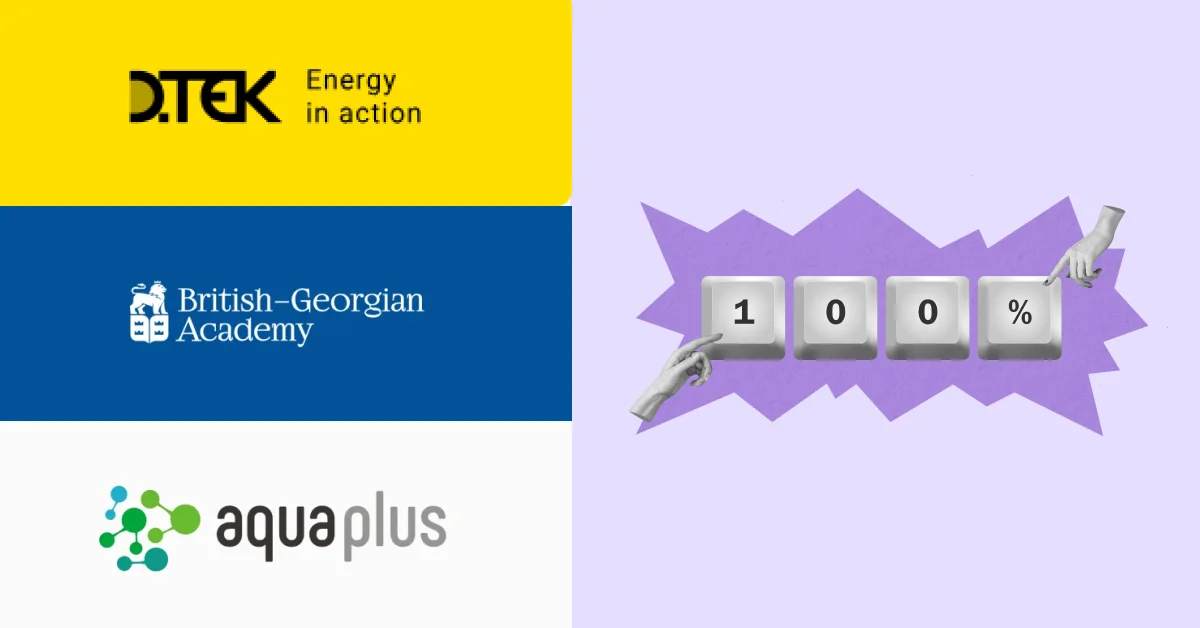
AQUA PLUS is a leading water treatment company in Western Ukraine that provides services for installing, repairing, and replacing water filters and purification systems. Their main requests for CRM implementation were:
- A professional partner team that understands requirements at a glance,
- Reliable and secure data storage,
- Ease of use for managers,
- Advanced functionality and extensive customization options,
- The ability to customize reports to analyze manager performance,
- Full data migration from the old system.
AQUA PLUS chose the SMART Order Management solution, implemented with the help of SMART business experts. Thanks to the new CRM system, the company automated order processing, reducing processing time and improving customer service quality. Microsoft’s security technologies ensured reliable data protection, while integration with SMART Connector for GMS optimized communication with customers through mass and trigger SMS and Viber messages, with result analysis capabilities.
The British-Georgian Academy (BGA) is a private educational institution in Sakartvelo, founded in 2006, committed to providing top-quality education. To achieve this goal, the academy decided to implement the SMART CRM solution from SMART business. The main requests of the company were:
- Modernizing their educational and administrative processes,
- Increasing staff efficiency,
- Improving communication with parents,
- Implementing SMART Customer Care for effective management of inquiries and real-time support for parents.
The CRM implementation allowed the academy to reduce the administrative burden on staff, save time for both employees and parents, and improve the transparency and speed of processes. As a result, the academy enhanced the overall quality of service, creating a more customer-oriented environment.
DTEK is a leading energy holding company in Ukraine. In 2023, the company launched the DOPOMOHA project (Eng. “Help”), aimed at attracting foreign donors to restore the energy infrastructure damaged by the war. To support the project, DTEK decided to implement the SMART Sales solution from SMART business. The main requests for implementation were:
- Improving the transparency of donor assistance usage,
- Quick implementation (within two weeks),
- Automating the process of attracting donors,
- Modernizing reporting and analytics through dashboards.
The implementation of SMART Sales in DTEK helped manage donor interactions effectively, speed up processes, and reduce risks, which was critical for supporting Ukraine’s energy infrastructure in these challenging times.
Thus, the implementation of CRM systems in business is not just a technological innovation but a strategic tool for improving operational efficiency, enhancing customer interactions, and achieving sustainable growth. Business process automation, real-time analytics, and personalized customer approaches allow companies to respond quickly to market challenges, minimize risks, and make informed decisions. CRM is the bridge between the company and its customers, ensuring transparency, trust, and long-term partnerships, creating a strong foundation for future success.
If you want to build quality customer relationships through a CRM system – submit a request, and the SMART business experts will help you select the right solution:
